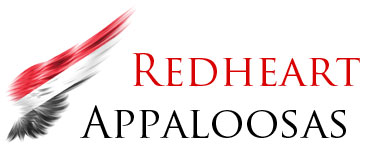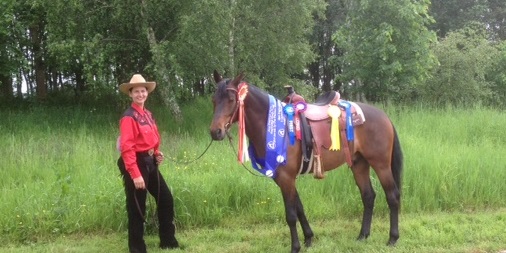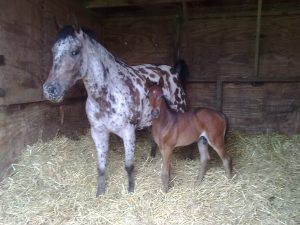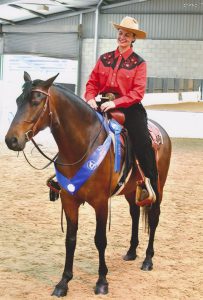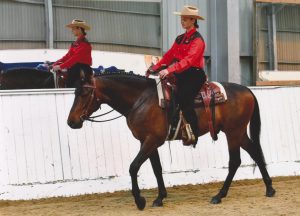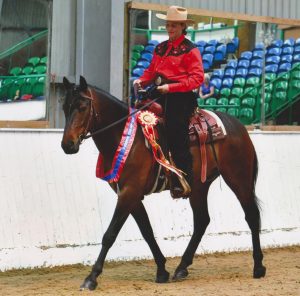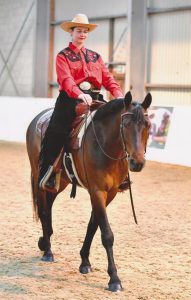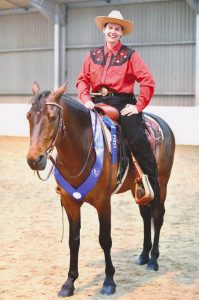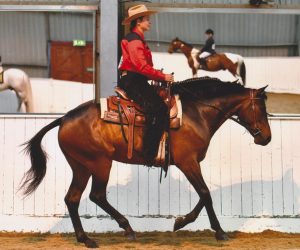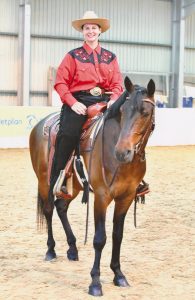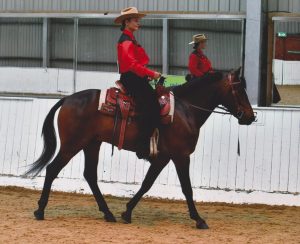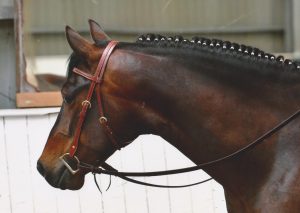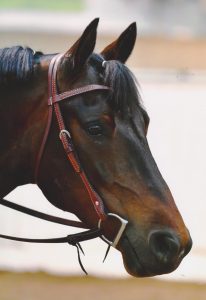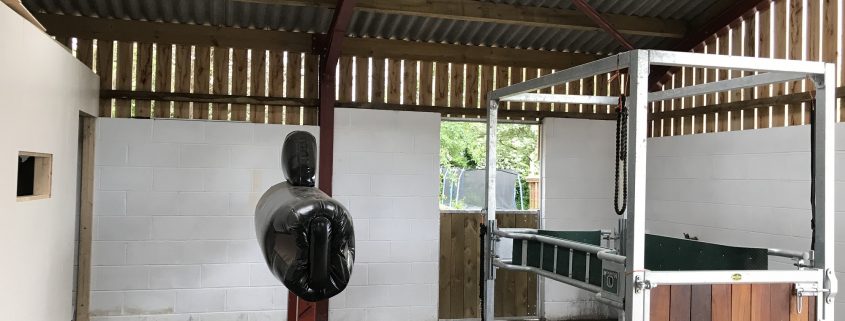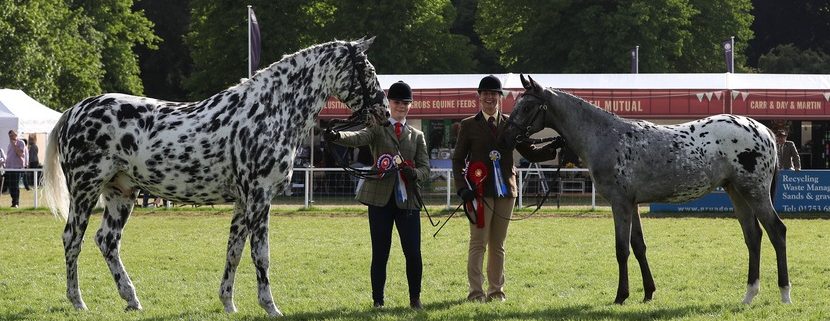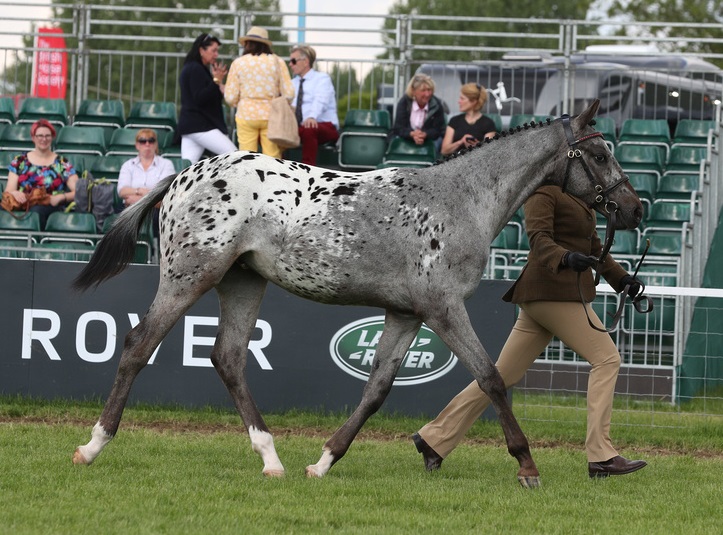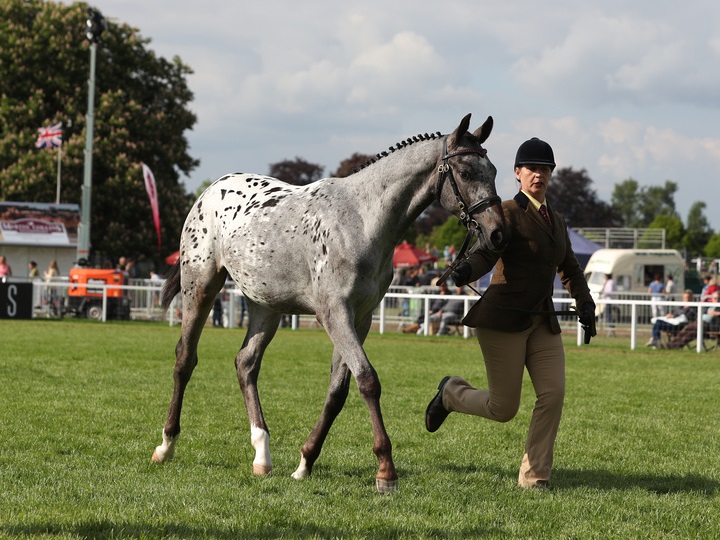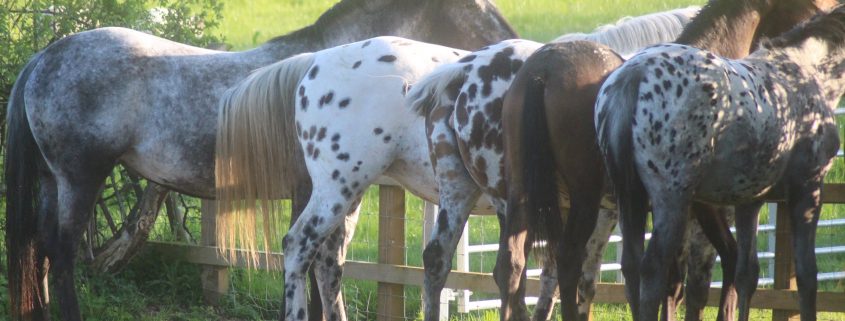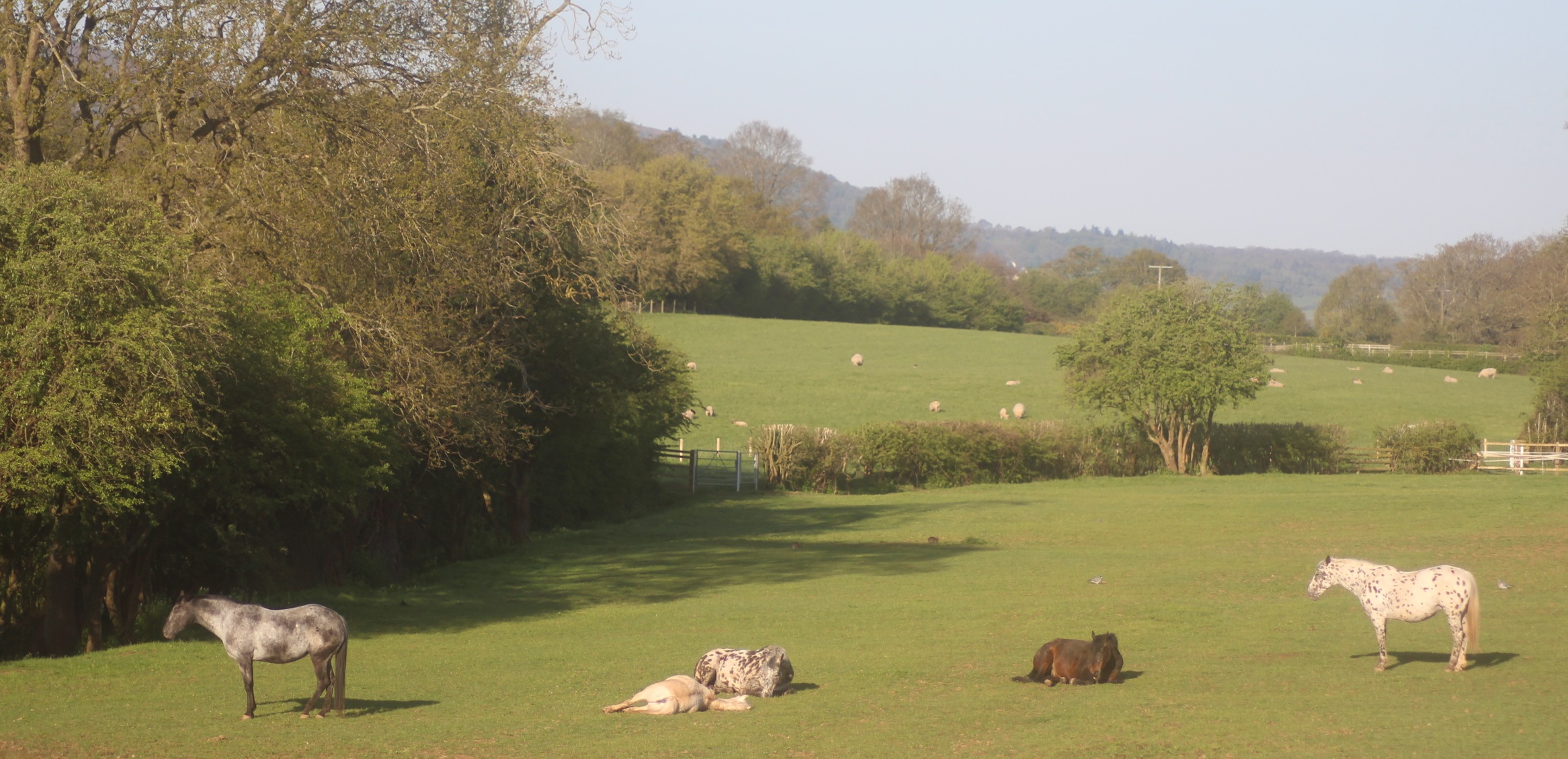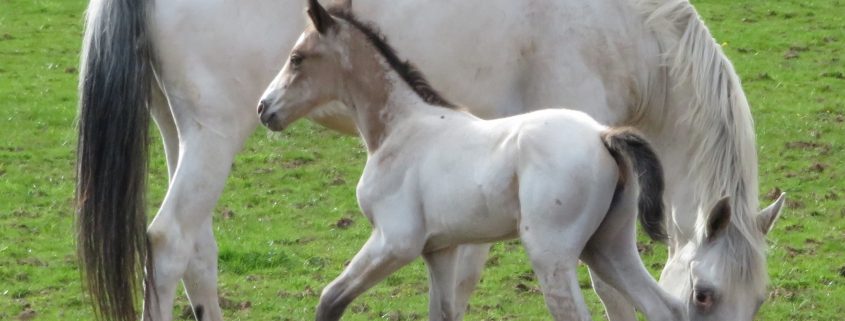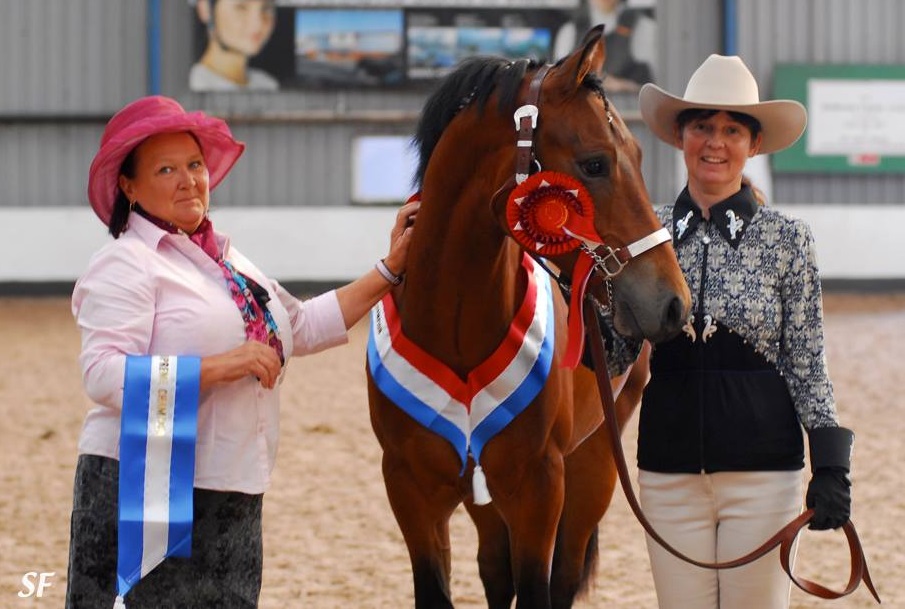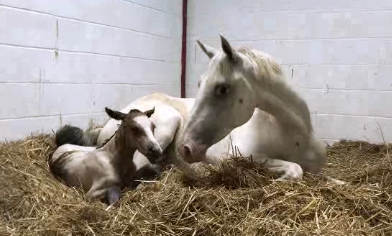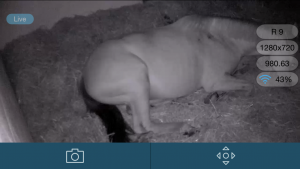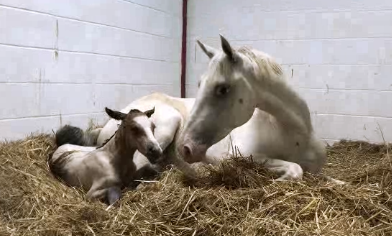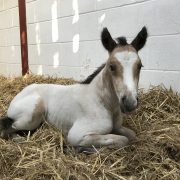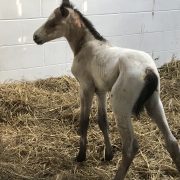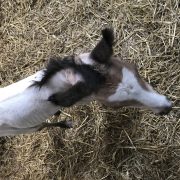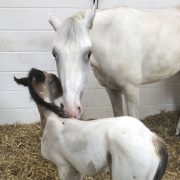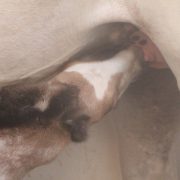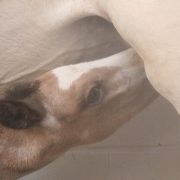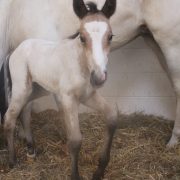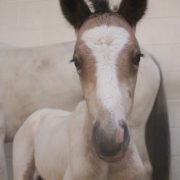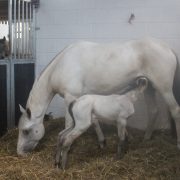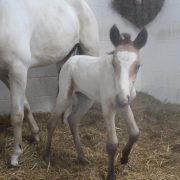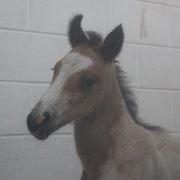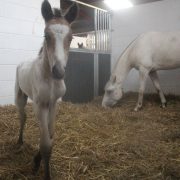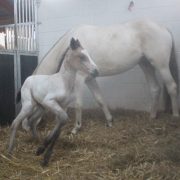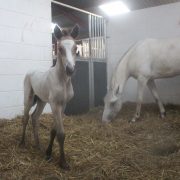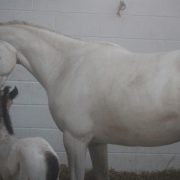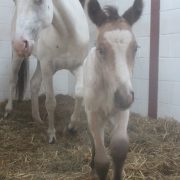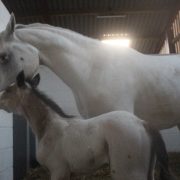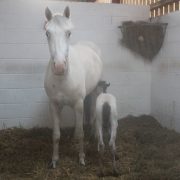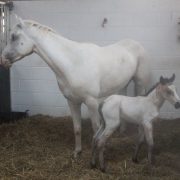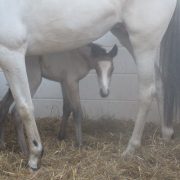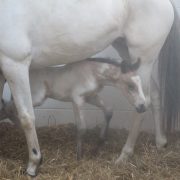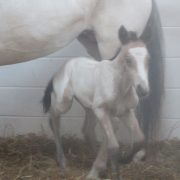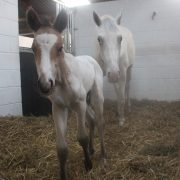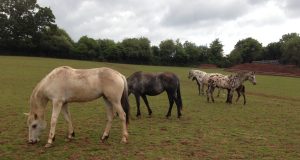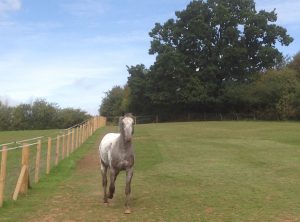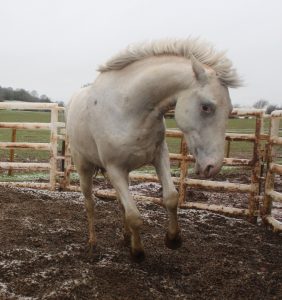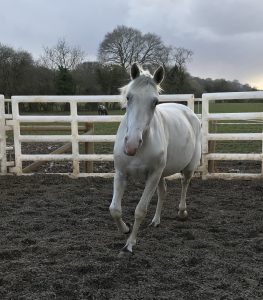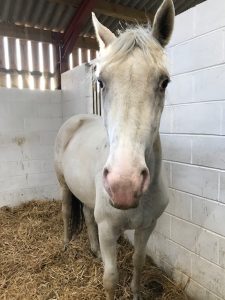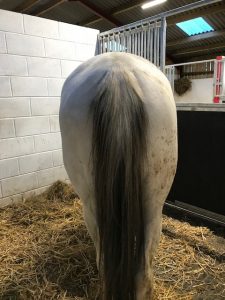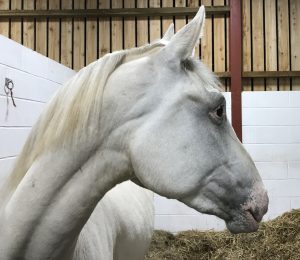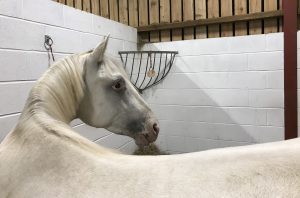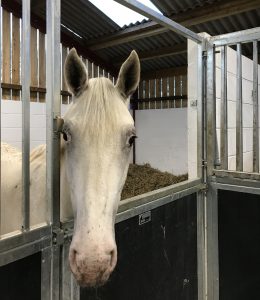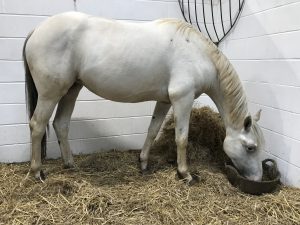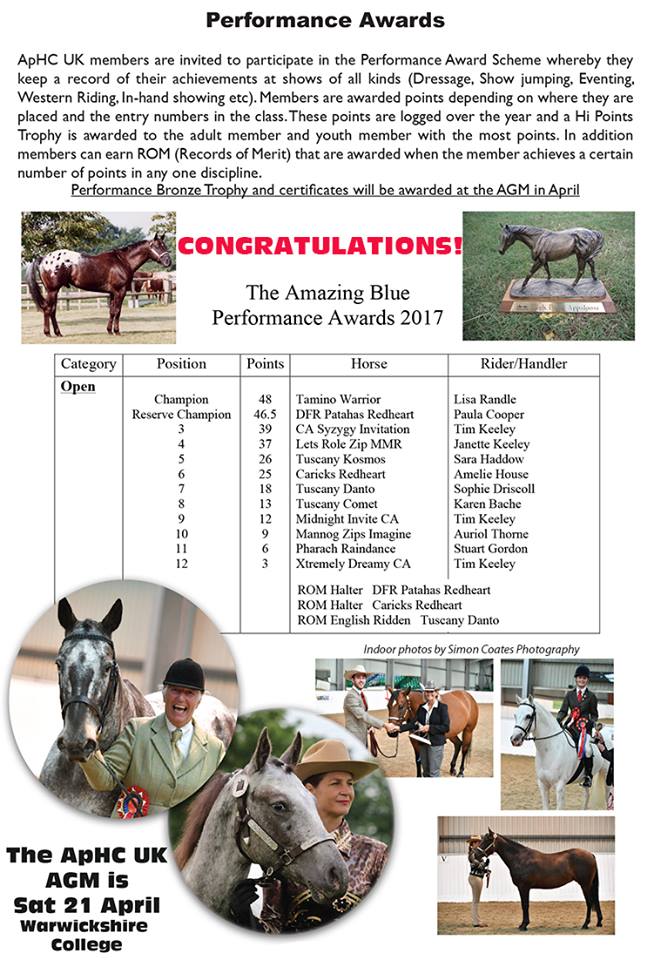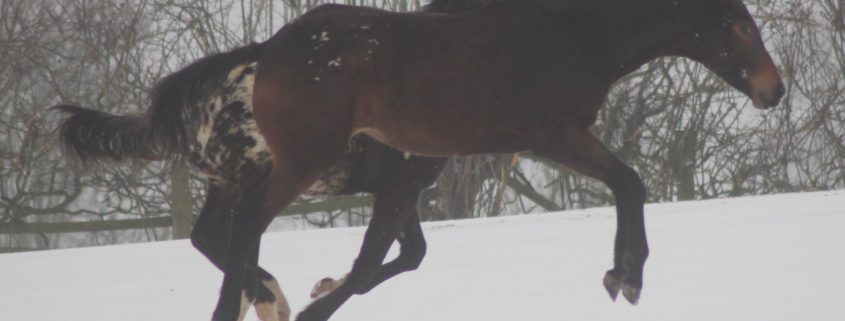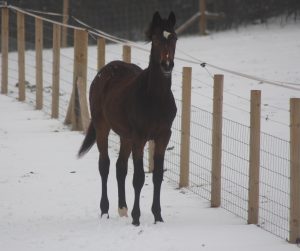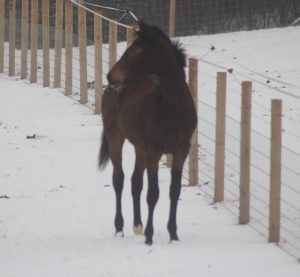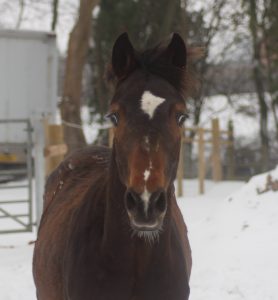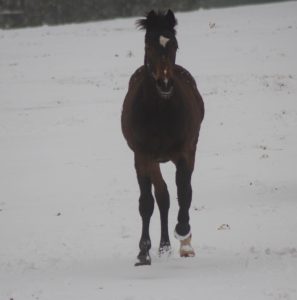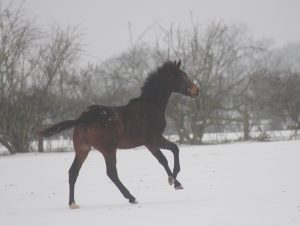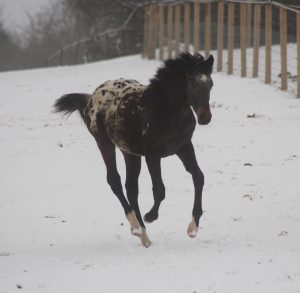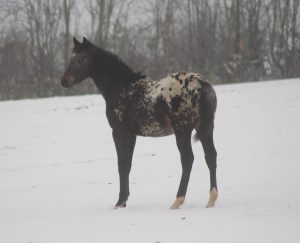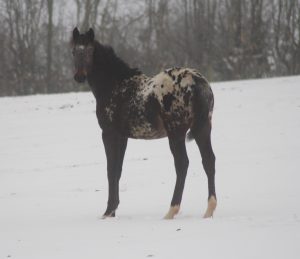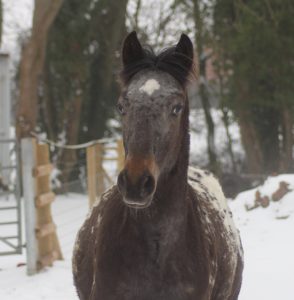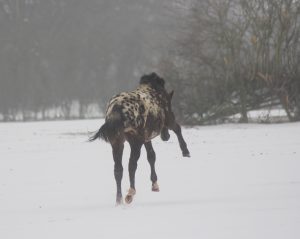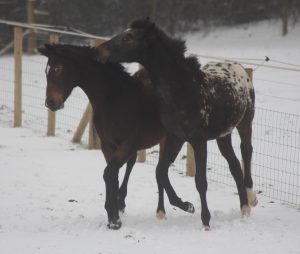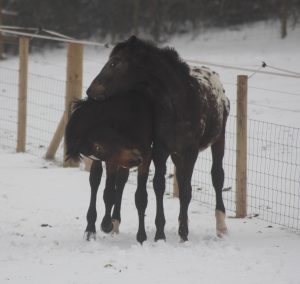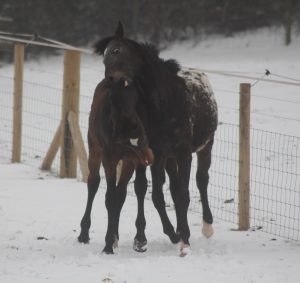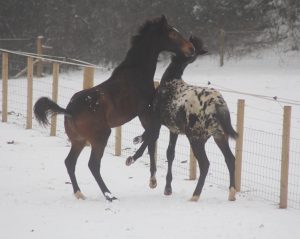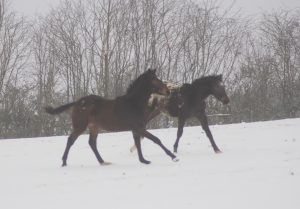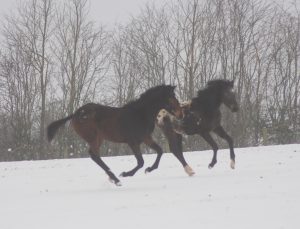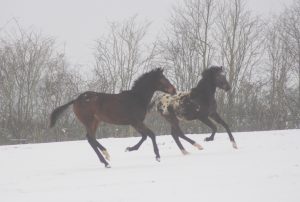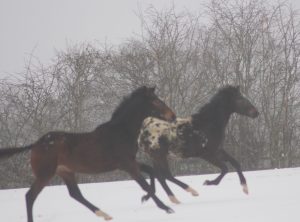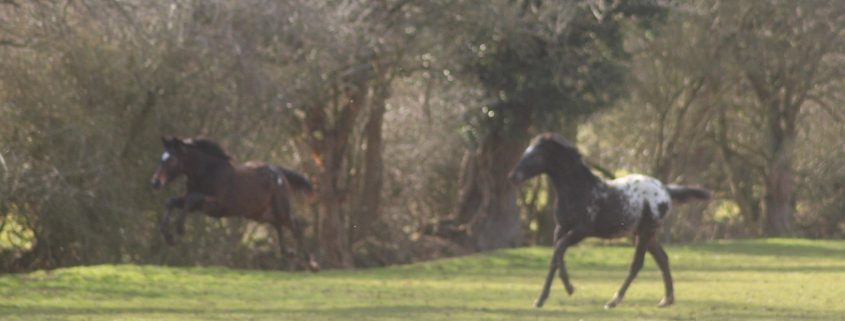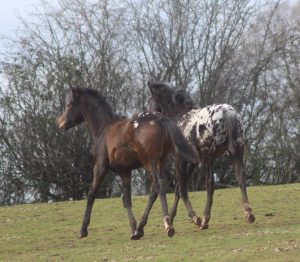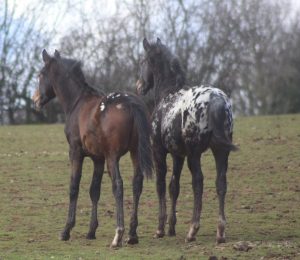Our ten-year plan is now well underway, we have imported new Appaloosa blood into the UK, we have shown in-hand all our “foundation” breeding stock and strongly believe our stock have earned their merits to breed, now we begin competing under saddle.
We have tested all the stock’s genes to clarify breeding forward with clear genetics. By definition, breeding negative mares to negative stallions can only result in negative foals. HERDA – Hereditary Equine Regional Dermal Asthenia, GBED – Glycogen Branching Enzyme Deficiency, HYPP – Equine Hyperkalemic Periodic Paralysis Disease and MH – Malignant Hyperthermia and of course the two most important here in the UK as Appaloosa registration default, the Grey gene, and PSSM1 – Polysaccharide Storage Myopathy.
For our own interest, we have tested the “foundation” stock for their colour and Appaloosa genetic makeup. It’s good to know what percentage of chance you have for specific color and coat patterns. One definite result we will never know is the gender, although saying that, our 2016 sex scans were correct.
The British Appaloosa Society (BApS) and the Appaloosa Horse Club UK (ApHC UK) have very strict guidelines for breeding registered purebred Appaloosas. We make sure our paperwork is fault free with DNA on file, genetic tests, stallion licensing and of course pedigree percentages. Redheart Appaloosa Stud pride themselves on not only ensuring completed registration certificates but the highest of the grades possible from each mating, being 100% Foundation Pedigree Designation (FPD), Generation Advancement Programme (GAP 5 or GAP 6) with Appaloosa Horse Club and GRADE A or STUD BOOK with the British Appaloosa Society. Our horses are overstamped with the Sports Horse Society and all foals are eligible.
We treat our mares like “princesses”, they are very important and are not breeding machines. We believe in quality, not quantity. The current supply of “Appaloosa’s” is high and the demand is low and if you’re looking for a spotty horse, then the market is plentiful, it is only through education will people understand the history of a Purebred Appaloosa, albeit BApS or ApHC UK registered. The current market offers some wonderful spotty horses, but beware and ask the right questions, not every spotty horse is an Appaloosa. The realisation that the purebred Appaloosa is a rare breed in the UK with less than twelve 100% FPD horses, less than six GAP 5 horses, not one GAP 6 and there are less than ten British Appaloosa Society Stud Book registered horses. (These figures might have increased to date).
We treasure our stallion, DFR Patahas Redheart, his age is a huge advantage to the longevity of the stud and his colour test confirmed homozygous black with a cream gene and homozygous PATN1 with foundation lines traced back to the first 8 Stud Books of the ApHC at 92.9687%. We know we have something quite unique, a very rare find in the Appaloosa world and one of a kind here in the UK.
Many studs and stallion owners allow their stallion to run with mares, some cover in hand and it works perfectly fine. On the other hand, some owners have seen and experienced detrimental damage to their stallions and mares under these conditions. Trying to limit the damage of such accidents we have stored frozen semen from our stallion Reus before castrating him, allowing him to have a rich life among his relations. Planning ahead with our stallion Blu, we have established a small AI unit, consisting of stocks, a basic lab, and a dummy mare. Certified by the Department for Environment, Food & Rural Affairs (DEFRA) as a UK AI technician I have the certificate of competence in AI of equines.
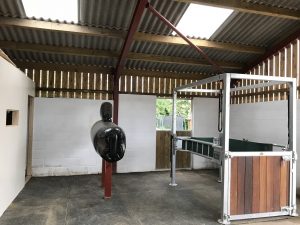
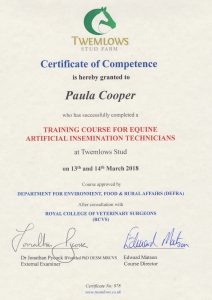
We are delighted to announce Princess Pascale, Caricks Redheart and Peyres Catori Cat are scanned in foal, due early April 2019.
We await Redheart Pascalius to come into season, looks like we will be busy next year!.
